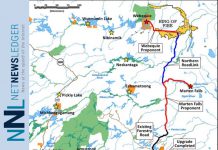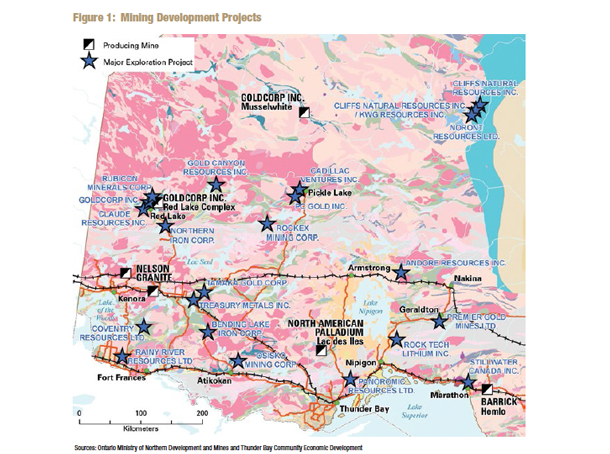

THUNDER BAY – Mining – Ontario Mining Association members Barrick Hemlo and North American Palladium are opening doors for more Aboriginal people to start careers in mining. These companies are the industry partners in the innovative Mining Essentials program, which is run through Anishinabek Employment and Training Services (AETS) in Thunder Bay. AETS serves nine First Nations in northwestern Ontario.
The Mining Essentials program is a work readiness course for Aboriginals. It was developed by the Assembly of First Nations and the Mining Industry Human Resource Council (MiHR) with curriculum consultation by educators and industry. The program has been run at three training sites including Confederation College in Thunder Bay, Northern College in Timmins and Northwest Community College in Hazelton, British Columbia.
Mining Training for First Nations
“Mining Essentials is a stepping stone to get entry level jobs,” said John DeGiacomo, partnership and development officer at AETS. “Industry has a chance to help First Nations that perhaps didn’t have that opportunity before to further their education.”
The program began in 2010 and since then, AETS has provided 22 of the 77 graduates in Canada. “Those who complete the common core training are qualified to work underground,” said John Hatton, training and development director for Confederation College. “The 12-week program involves two-thirds classroom work, with the rest on the job site. When they finish this, they can start work at any mine.”
“Companies like Barrick Hemlo and North American Palladium has stepped up to the plate,” added Mr. Hatton. The current class at North American Palladium’s Lac des Iles mine has two instructors – Gerry Connors, from OMA member Cementation and who has 30 years experience in the mining sector, and Howard Twance, Aboriginal educator and former chief of the Pic Mobert First Nation. Many Pic Mobert First Nations members have and do work at Barrick Hemlo’s gold mining facilities.
“The main goal is to provide Aboriginal people with the skills and confidence needed in the mining workforce,” said Mr. Twance. “It is a nationally validated pre-employment program and a course designed with the Aboriginal learner in mind. They’ve incorporated a cultural content into the program.”
Studies have indicated that in northwestern Ontario, the mineral industry will be requiring in the next 10 years between 1,110 and 4,150 new mine workers. Mining Essentials is an innovative program that is both helping to both advance skills levels and training amongst First Nations residents and to narrow the mineral sector’s labour shortage gap.
According to the economic impact study “Mining: Dynamic and Dependable for Ontario’s Future,” Aboriginals account for 9.7% of the province’s mining workforce. Mining is the largest private sector employer of Aboriginals in Canada. Aboriginals represent 7.5% of the national mining workforce and 3.8% of the Canadian population.




